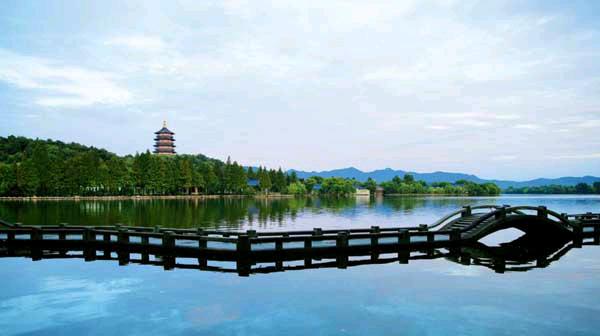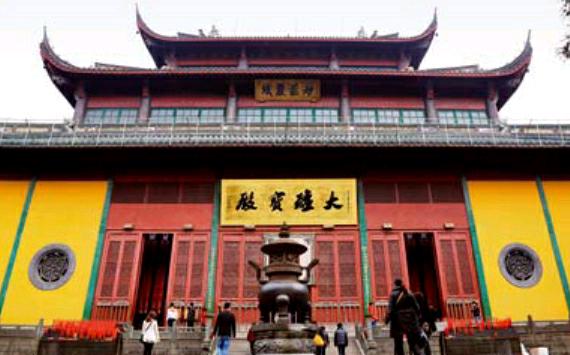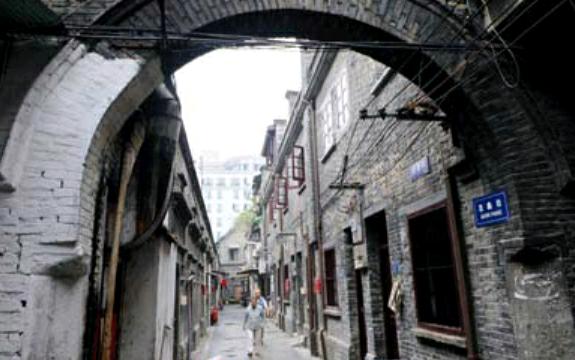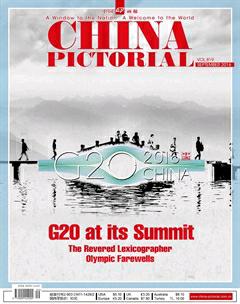Hangzhou:A Tradition of Innovation
by+Nancy+Gong
On November 16, 2015, Chinese President Xi Jinping declared at the G20 Summit in Antalya, Turkey, that Chinas Hangzhou, Zhejiang Province would accept the relay baton for the 2016 Summit. On December 1 the same year, China began preparations to host the G20 Summit of 2016.
Despite being a founding member state of the G20, this is the first time that China has ever presided over G20 since the establishment of the G20 Leader Summit dialogue mechanism in 2008. Composing one of the most powerful economic platforms in the world, the G20 member states contribute 85 percent of the world GNP and 80 percent of global trade value.
As the host city of the important event, some may wonder what to expect from Hangzhou and why it has been tasked with such a crucial mission in the wintery global economic climate.
Hangzhou is worth more than just a look.
More Than a Destination
Hangzhou, Zhejiangs provincial seat, has been widely famous in both historical and cultural realms for a long time. At 5,300 years old, Liangzhu Cultural Ruins in todays Yuhang District, Hangzhou, provides some of the oldest evidence of ancient Chinese civilization. In 2018, the municipal government will apply to make it permanent World Cultural Heritage. One of the seven ancient capitals of China, it served as the seat of the State of Wuyue(907-978) during the Five Dynasties period (907-960) as well as that of the Southern Song Dynasty (1127-1279).
Hangzhou features a beautiful natural landscape. A stillpopular Chinese saying from the Tang Dynasty (618-907) goes,“Heaven has Paradise, Earth has Hangzhou and Suzhou,” and the longevity of the expression attests to the persisting charm of the city. West Lake in southwestern Hangzhou included on the 2011 World Heritage List has been enchanting for visitors from around the world for centuries with its beautiful landscapes and numerous places of historical interest. The Qiantang River that runs through the city draws streams of spectators with fantastic tides, one of the three mighty bores in the world, on or around the 18th day of the eighth month on the lunar calendar. Tide watching first became popular during the Tang and Song dynasties.
Hangzhou takes pride in its artifacts, both historically and culturally. The Beijing-Hangzhou Grand Canal, for instance, stretching from Hangzhou in the south to Beijing in the north, was built in 1631. At 1,797 kilometers long, it is the biggest ancient manmade watercourse ever. On June 22, 2014, the Canal was listed as a World Heritage Site.
But those heavyweights are actually just the tip of the iceberg. At 1,700 years old, Lingyin (Souls Retreat) Temple, mausoleums of the emperors during the Tang and Five Dynasties, and the temple to Yue Fei, a heroic general of the Southern Song Dynasty, are three more standouts among many others.
Throughout history, Hangzhou has enjoyed considerable fame. During the 13th Century, Italian adventurer Marco Polo called the city the “most beautiful, luxurious city in the world.” In 2011, Hangzhou was cited by The New York Times as one of the worlds 41 must-visit places and cited as an “International Garden City” by the United Nations Environment Programme.
Hangzhou has played an important role in Chinas diplomatic history. In 1972, the Sino-U.S. Joint Communiqué was preliminarily signed in the citys Octagon House, which laid a cornerstone for the establishment of the China-U.S. diplomatic relations. In 2014, the city hosted the Fifth China-U.S. Workshop on Anti-Money Laundering and Combating the Financing of Terrorism as part of the Sino-U.S. Strategic and Economic Dialogue.

In January 2015, China National Tourism Administration formally announced the idea of “tourism diplomacy.” In July of that year, the municipal government of Hangzhou appointed Zhou Zhen, a taxi driver, and his family, as “public diplomatic friendly messengers” alongside an American musician and his family from California. As a famous tourist city, Hangzhou took the lead in the campaign of “tourism diplomacy.”
E-Commerce Capital
Today, the ancient city of Hangzhou is a big thriving metropolis known for vigorous innovation and modern, international flair.
In 2015, Hangzhou set a new record in its GDP – over 1 tril- lion yuan, a rise of 10.2 percent, ranking it among Chinas top 10 cities in terms of GDP. The same year, it ranked fifth among Forbes Best Chinese Mainland Commercial Cities. Moreover, it has been cited many times by the World Bank as a city with an optimal general investment environment.
Hangzhou lives up to its reputation as Chinas “e-commerce capital.” Alibaba Group, the worlds largest e-commerce company, chose Hangzhou for its world headquarters. With Alibaba as the backbone, the citys internet economy has not only driven Hangzhous economic development but also pushed future trends of world economic development. Chinas E-commerce Industry Development and Hangzhou Index White Paper issued by the Nielsen Company shows that Hangzhous e-commerce is still widely-influential globally. At present, the city serves as the epicenter of Chinas e-commerce, as home to a third of the countrys e-commerce websites. Statistics on online consumption from the Department of Commerce of Zhejiang Province show that the incremental value of Hangzhous e-commerce in 2015 topped 82.654 billion yuan.
Over the last few years, Alibaba has fostered the establishment of myriad emerging internet players. Many new startup industrial parks have mushroomed in the city, such as Taobao online business park, Tencent startup base, and the Dream Village, which was established in 2014 with a goal of incubating startups with over 300 billion yuan in total financial assets within three years. By June 2016, 99 makerspaces had been registered in Hangzhou, working with a total of 7.2 billion yuan in capital.
Of Chinas top 500 private enterprises of 2015 as ranked by the All-China Federation of Industry and Commerce, 55 were based in Hangzhou, leading China and Zhejiang Province for the 13th straight year.
Hangzhou owes its thriving private enterprises to the great force of “independent innovation.” Over 6,500 patents have been awarded to Hangzhous Geely Automobile China of 13,000 applications, making the brand one of Chinas Top 10 in Independent Innovation for Enterprises with Intellectual Property. Wahaha Group, a Chinese beverage giant, has also introduced state-of-theart technologies to improve its offerings.
E-commerce and the private real economy cannot continue growing without policy support from the municipal government. Today in Hangzhou, approximately 100 startup districts and relevant facilitating agencies are working at full steam, including Xixi Fudi Startup Park and Binjiang Hi-tech Industrial District, which have become incubator bases for new enterprises.

